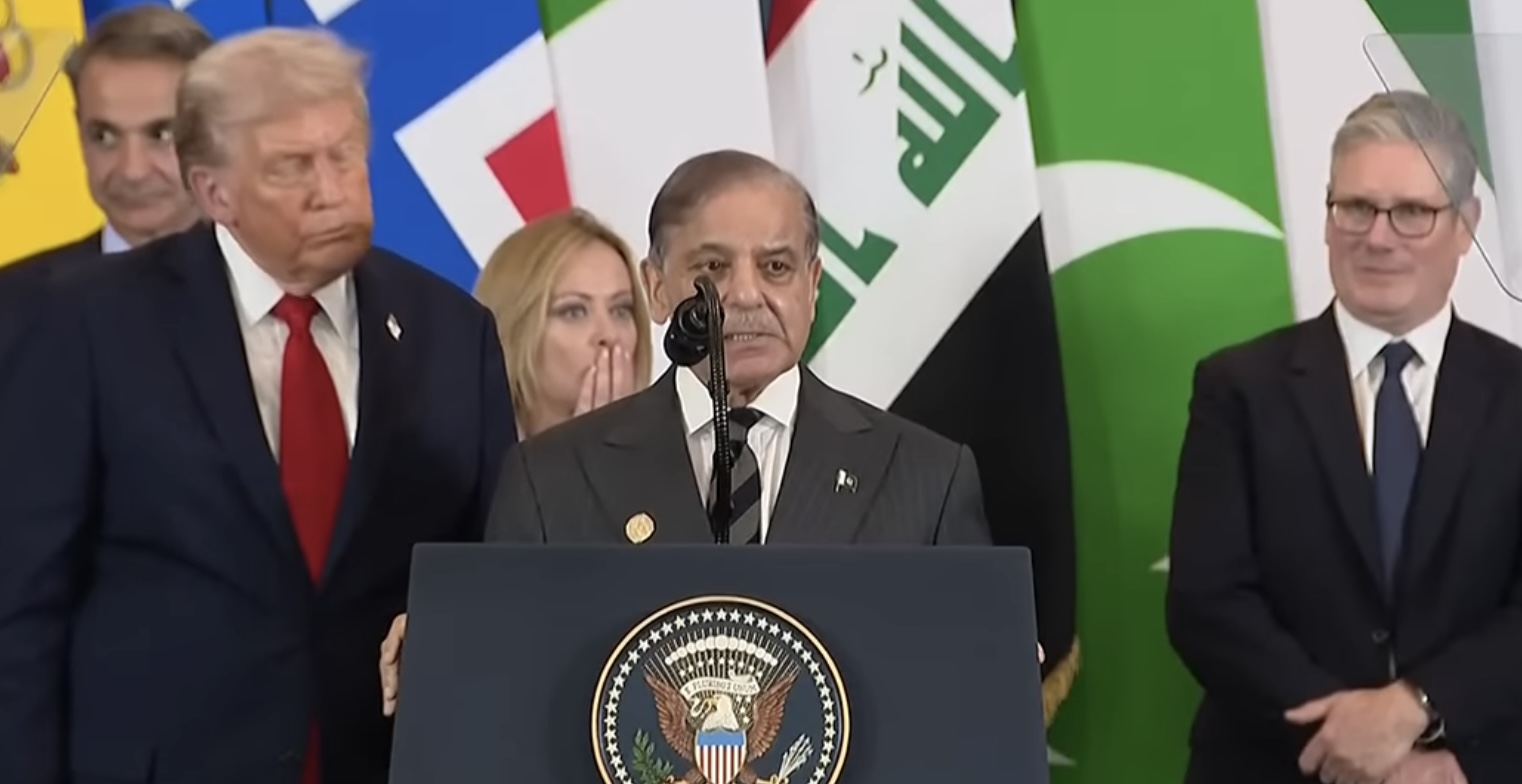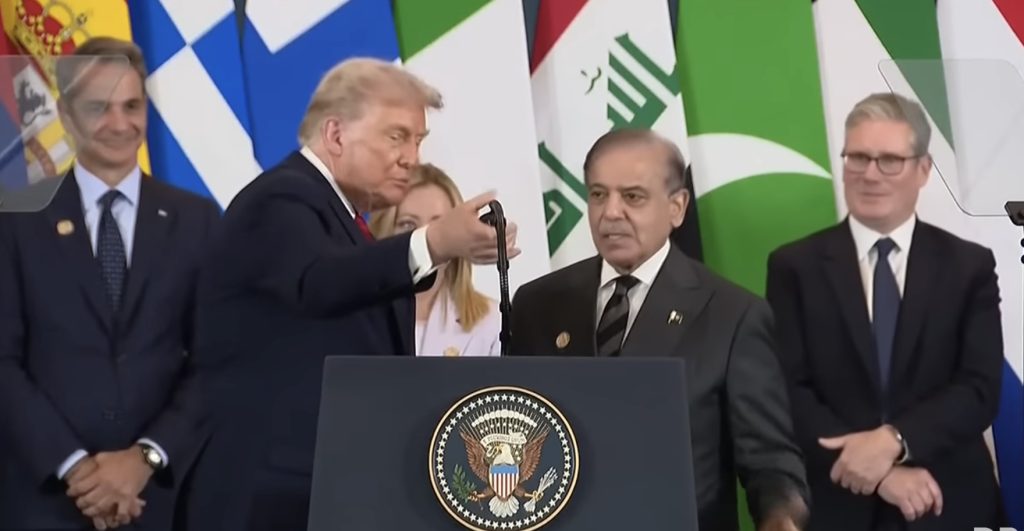Blazing Quill
Flattery as Foreign Policy: The Command of Praise and the Court of Sharm el-Sheikh
By Raja Zahid Akhtar Khanzada
They say the dust of royal courts holds an alchemy that turns brass into gold — and reason into silence. It is that very soil of submission from which our rulers’ carpets are woven. Today’s age is not one of diplomacy, but of recommendation, elevated to an art form. And the masters of this delicate craft are those before whom even the Alexanders of history hesitate before holding a microphone.
When the lexicon of history redefined flattery as “diplomacy” and praise as “wisdom,” the pen must have trembled. Yet now we live in an era where the one who recites the ode is hailed as a philosopher, and the one who listens — a savior.
Once again, the world map has been redrawn in the theater of power — courtiers’ smiles in Pharaoh’s hall, artificial lights glinting upon carpets of etiquette, and at the center, a moment when politics melted into panegyric.
At the conference hall of Sharm el-Sheikh, words broke into a sweat, sentences froze in the shadows, and truth itself applauded.
When the faint, proud smile surfaced on Donald Trump’s face, it became clear that authority is no longer measured by power — but by praise.
Leaning toward the microphone, the U.S. President said:
“You’ll convey my greetings to him…”
The line struck history’s chest like Pharaoh signaling the Israelites to part the sea. Trump paused — pride did not permit him silence. He continued:
“Would you like to say what you just told me?”
The court fell quiet, as if the king had granted his scribe permission to complete the ode.
Shehbaz Sharif stepped forward — gratitude in his eyes, obedience in his tone, perhaps another’s name quietly turning in his heart. From his lips flowed a new decree of devotion:
 “Mr. President, I salute your exemplary leadership. You are the man the world needs most at this time.”
“Mr. President, I salute your exemplary leadership. You are the man the world needs most at this time.”
It was not a sentence — it was a proclamation inscribed upon the foreheads of nations.
It seemed as if colonial subservience had simply changed attire, wrapping itself in a new elegance.
Once, poets like Mir and Sauda recited verses in the Mughal courts of Delhi.
Today, our leaders present recommendations for Nobel Peace Prizes in Washington and Cairo.
Times have changed — but praise remains Article One of our foreign policy.
When Shehbaz Sharif added,
“We truly believe you are the most sincere and capable candidate for peace,”
it was not the diplomats who applauded, but the inherited temperament of our ancestors —
that instinct which knew how to keep one’s “head intact” beneath the throne’s shadow, and always banished truth to the back rows.
One side of the stage smiled triumphantly; the other bent its consciousness a little lower.
Trump raised his hand with that signature look of self-astonishment.
“Wow. I didn’t expect that. Well, let’s go home.”
History itself seemed to choke back laughter.
The courtly recital was over; the audience clapped — and dignity’s coffin searched for shoulders.
It was that moment when irony embraced diplomacy, and the world saw how a simple phrase — “God bless you” — could auction off a nation’s pride.
World politics today is a theater — where words are characters, and praise is dialogue.
Donald Trump is not merely a president; he is the god of self-worship in the modern age.
And our prime minister — a student of that same school that teaches flattery as foreign policy.
This is the era when every column in the palace bears the seal of praise.
From Shehbaz Sharif’s lips fell pearls of admiration as if history itself had rewritten its script on silk.
One imagines Hafiz Shirazi peering through time and whispering:
“O people of words, this is no poem — it’s a family tree being written.”
When Sharif said,
“Had this man not intervened, war between India and Pakistan might have consumed every living soul,”
it echoed in history’s ears like a nation stamping its survival certificate on another man’s desk.
That was the moment when honor applied for a diplomatic visa.
If only someone had been brave enough to ask:
“Sir, did you buy peace — or sell dignity?”
Because the two never coexist.
But the hall resounded only with applause, as if loyalty itself had become human instinct.
When politics speaks not from reason but from weakness of the heart, nations cease to be strong — they become infatuated.
Our history, alas, has always been written in the shadow of praise.
Once, poets offered hymns before kings; now, leaders offer encomiums before superpowers — in pursuit of peace prizes.
Yesterday’s prostration of reverence has turned into today’s prostration of rhetoric.
The clothes have changed — the intentions have not.
It seems we have taken our collective psyche out of the soil of Mir and Ghalib, and republished it as the White House Edition.
When our leaders speak, the tone carries the faint perfume of servitude.
And the applause — echoed even among Muslim nations — sounded like a collective confession:
“You have stolen our words, and this is our shared apology.”
Trump’s face glowed with satisfaction.
Sharif’s voice trembled with reverence.
And the global media wrote in unison: “It was an extraordinary moment.”
Indeed, it was — for extraordinary nations do not utter ordinary words.
At Sharm el-Sheikh, there was not merely a speech — there was an international rehearsal in submission.
One mastered the art of flattery; the other turned arrogance into art.
And the rest of the world, knowing the truth, could only clap.
If a historian one day writes that “In Sharm el-Sheikh, history turned into irony,”
he would not be wrong.
That day — the mic, the words, the applause — all became the title of a new chapter:
“Flattery as Foreign Policy.”
If Iqbal were alive, he might have said:
“You are no longer eagles, but peacocks — you’ve turned the falcon into a parrot for this court,
and yet your flight still waits for another’s signal.”
Our politics now breathes through praise.
Where applause sounds, democracy dies.
And when a leader says to a superpower,
“The world needs you,”
it is a sign that his nation has forgotten what it needs.
That day, the world learned that Sharm — “shame” — is not just the name of a city.
It is a forgotten virtue — erased from our language.



